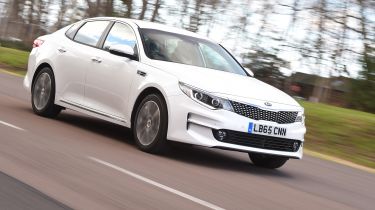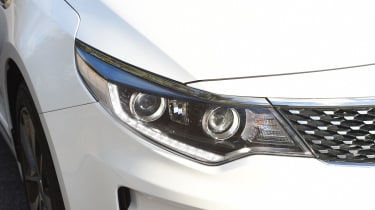Kia Optima review - Reliability and Safety
Tried and tested engineering and sound safety credentials make the Kia Optima a reassuring package

Korean car makers have gained a reputation for building reliable cars, so buying an Optima should be trouble-free. It shares its platform with the Hyundai i40, while the 1.7 CRDi diesel is found in a variety of other models, so its running gear should be reliable. The PHEV is relatively new, however, so reliability hasn't been proved.
The Optima wasn’t featured in our latest Driver Power customer satisfaction survey, but the brand’s overall rating of 14th out of 32 manufacturers was a pretty good showing. Many owners will take comfort from the extraordinarily long warranty provision, and we’re not aware of any particular problems affecting either the new Optima or its predecessor.
The Optima hasn’t been tested by Euro NCAP, but its sister car, the Hyundai i40 has, and that model achieved five stars which should tell you all you need to know. All Optimas get six airbags, stability control, Isofix and ABS with brakeforce distribution, but if you want blind-spot detection and lane keeping, opt for the mid-spec Optima 3 model. The top-spec Optimas get 360-degree parking cameras too.
Warranty
Like all Kias, the Optima is delivered with the reassurance of a seven-year, 100,000-mile warranty, which is pretty much unbeatable in terms of cover, and has doubtless helped the onwards and upwards march of Kia’s values on the second hand market.
Servicing
As a budget brand, you’d expect the servicing costs to be low and Kia comes up trumps with a three-year service plan that will set you back just £329. You can buy five-years of maintenance in advance for £609, which you can’t argue with either.








